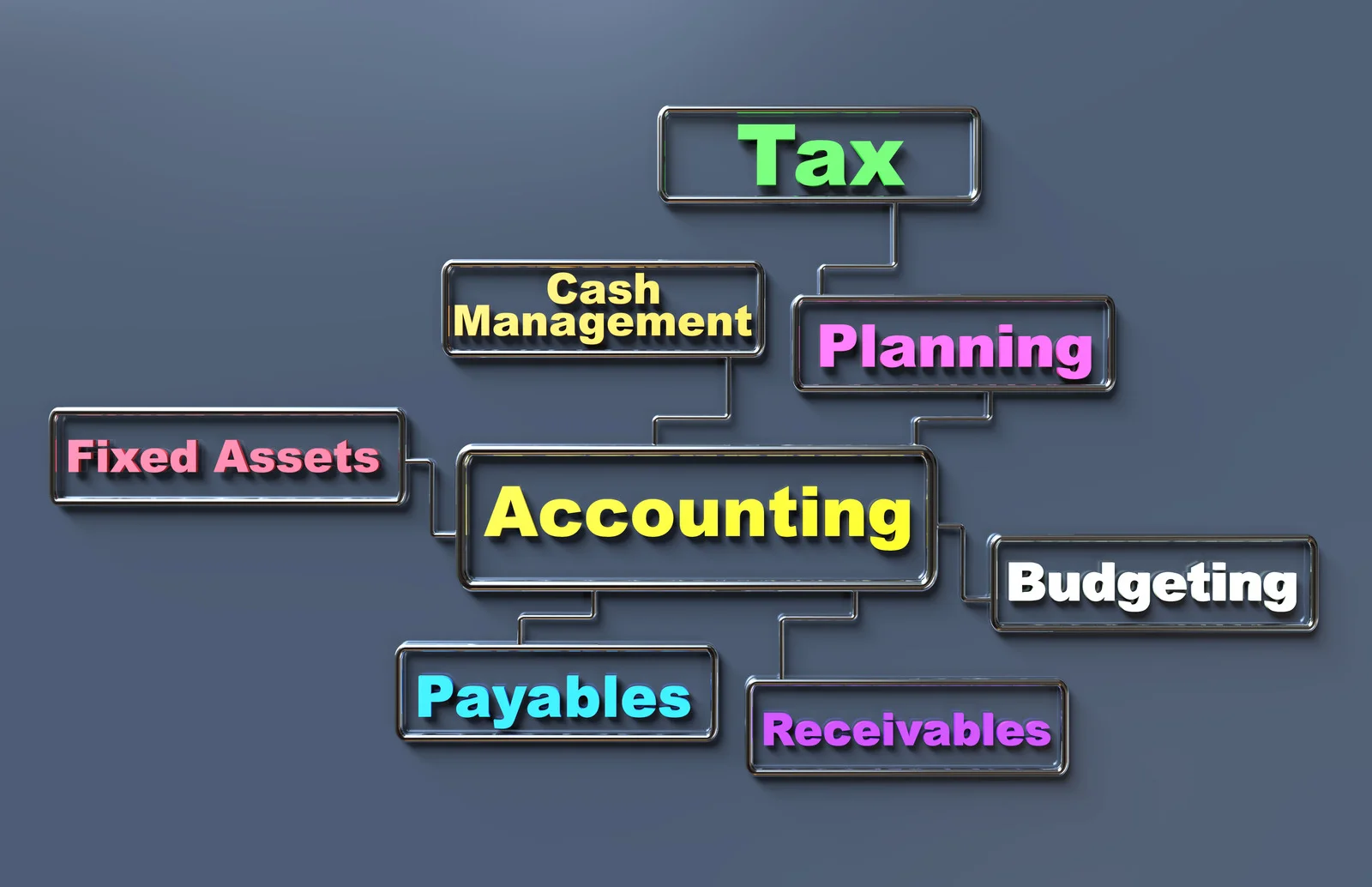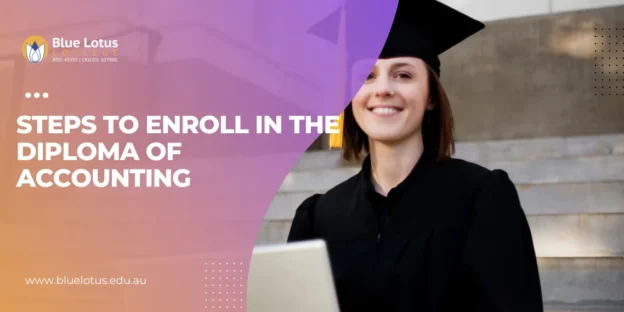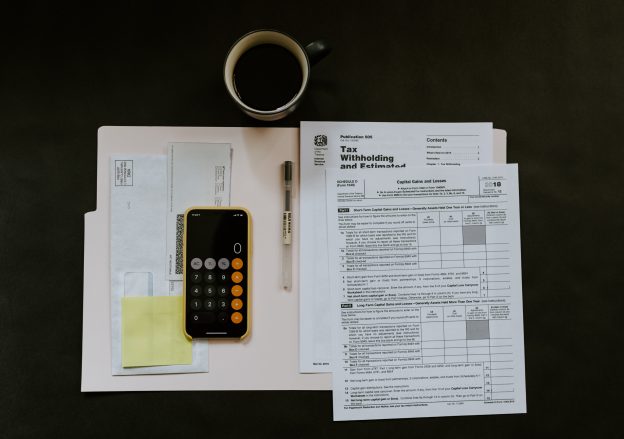A diploma in Accounting opens the door to various career prospects and provides highly relevant graduate skills in the financial industry. With this in mind, in this blog, we will explain how to enroll in the Diploma of Accounting.
Let’s get started!

Understanding the Diploma of Accounting
This Diploma of Accounting is a fully accredited accounting program that provides students with an appropriate understanding of the accounting body of principles and practices. The diploma is suitable for people who wish to start their career in accounts or increase their knowledge base in this area.
More Helpful Resources:
How Choosing a Career in Accounting Can Lead to a Stable and Rewarding Future
Course Curriculum and Subjects
This diploma incorporates modules such as financial accounting, management accounting, taxation, and business law. Furthermore, students also get hands-on experience with accounting software and tools that help students be prepared for the real world outside of school.
Learn In Detail About
Course Curriculum and Subjects:
FNS50222 Diploma of Accounting
Skills and Knowledge Acquired
By the end of the diploma, students will have attained core competencies in aspects of financial reporting, budgeting, and activities of economic analysis. They will also be in a position, thanks to this program, to develop critical thinking and problem-solving abilities that would become an advantage to any organisation.
More Helpful Resources:
Career Opportunities with Accounting and Bookkeeping Certification

Eligibility and Requirements
Before one enrols in a Diploma of Accounting, it is important to understand the preliminary requirements and the basics required for this program.
Professional Experience
Some schools would like or prefer applicants to have previous work experience in accounting or finance, which may facilitate a practical understanding of concepts learned in the program.
Language Proficiency Requirements
Most people should prove their knowledge of English through a standardised test, such as IELTS or TOEFL, particularly those from non-English speaking backgrounds.
More Helpful Resource:
Top 5 Accounting Skills Graduates Need for Career Success

Researching Institutions and Courses
We will now look into the crucial step of this journey: the decision in choosing the right institution for your enrollment.
Accreditation and Institutional Reputation
Ensure that you attend an approved institution of excellent reputation in the subject of accounting, since such accreditation increases your chances of being recognised by employers and other professional groups.
More Helpful Resource:
6 reasons why you need practical accounting training
Delivery Modes (Online, In-person, and Hybrid)
Decide the ideal delivery mode for your learning preferences and availability. Most institutions offer flexible options, which include online, in-person, and hybrid courses.

Application Process
Once you select your institution, the next step is to apply to enrol in the program.
Preparing Your Application Documents
Gather all your documents, including transcripts, résumé, and all other certificates. Make sure they are current and as accurate as possible in representing your academic and professional background.
More Helpful Resource:
7 Reasons Why Accounting Might be the Perfect Career Choice
Write a Great Personal Statement
An essential part of your application process, describe your motivation or passion for accounting in clear terms, your career goals, and why you are best suited for this program.
Enrollment Steps

After receiving an acceptance letter, the enrollment process continues with these steps:
Tuition fee payment and other payments
Ensure that you pay all the institutional fees like tuition before the deadline for payment elapses. This will also comprise administration fees and books, among other things.
Registering for Classes
Once you have paid off your fees, you will be required to register for your classes. Just follow the guidelines in your college so you get enlisted in the proper subjects for your diploma.
More Helpful Resource:
8 Common Accounting Graduate Job Interview Questions
Preparing for Your Studies

Success without preparation is impossible for your diploma program. These are a few tips to help prepare for your studies:
Time Management and Study Techniques
Come up with a study plan that can optimise a work-life balance and include all relevant course materials and topics. Use proper techniques to study effectively, such as active reading, notes, and review sessions.
More Helpful Resource:
All You Need to Know About Accounting Internship
Utilising Available Resources
Use your institution’s facilities: libraries, online material availability, tutoring services, and study groups. This will improve your learning experience.

Conclusion
Applying for a Diploma in Accounting could be a valid start to your career in the financial industry. Preparedness for enrollment can be best achieved through the steps outlined in this blog.
FAQs
What career opportunities are available after completing the Diploma of Accounting?
Career opportunities upon graduation include jobs such as bookkeepers, assistant accountants, or payroll officers as well as prospects of further studies towards higher accounting qualifications. Learn More About
Career In Accounting
Is it possible for me to work while I study for the Diploma of Accounting?
Yes, most of these programs have flexibility in their study options, so students can still pursue part-time job opportunities alongside their studies.
What is the duration of the Diploma of Accounting?
The period varies from institution to institution but usually ranges from one to two years.






 As well as growing professionally with a bundle of experiences in the industry, personal growth can arise from an accounting career trying and testing different roles within the company.
As well as growing professionally with a bundle of experiences in the industry, personal growth can arise from an accounting career trying and testing different roles within the company.


